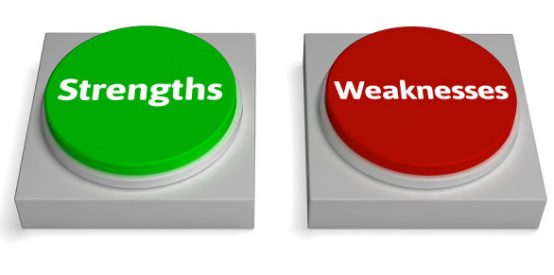Ask anyone who’s just had a performance review what they’re working on improving this quarter, and I’ll bet they’ll tell you precisely what deficits they want to fix. I hear this all the time with my coaching clients. And if you ask them what their strengths are, they won’t be nearly as clear.
A Gallup poll investigated this phenomenon by asking Americans, French, British, Canadian, Japanese, and Chinese people of all ages and backgrounds this question:
“Which do you think will help you improve the most: knowing your strengths or knowing your weaknesses?”
The majority of people don’t think that the secret to improvement lies in a deep understanding of their strengths.
- The most strengths-focused culture is the United States, but still only a minority of people–41 percent–felt that knowing their strengths would help them improve the most.
- The least strengths-focused cultures are Japan and China. Only 24 percent believe that the key to success lies in their strengths.
Interestingly, in every culture older people (55 and above) were the least fixated on their weaknesses. Perhaps they’ve acquired more self-acceptance and realize the futility of trying to be what they are not.
A Focus on Faults
Why do so many people waste time trying to fix themselves and others? Weaknesses are fascinating and strangely mesmerizing, like watching characters in soap operas and on reality TV shows. The attraction lies in the fact we deeply fear our weaknesses, our failures, and even our authentic selves.
The human brain is wired to pay attention to fear and danger. However, if you do not investigate your strengths you will miss out on becoming who you are really meant to be.
Positive Management
Have you noticed an emphasis on problems in your work place? Bosses who practice positive leadership are rare. Leaders and managers tend to focus on what’s wrong and neglect to mention what’s right and what’s working well.
Unfortunately, in my work coaching executives, I’ve noticed there’s a natural tendency to talk about what’s wrong and what’s not working. It’s not just the managers, but employees as well. It seems we have a bias towards negativity.
Two key factors explain our natural resistance to using positivity and appreciation:
- Physiologically speaking, our brains have a built-in negativity bias. We’re hardwired to pay more attention to issues that threaten our survival (negative trumps positive). Crises and problems dominate work agendas. Managers’ daily tasks necessitate solving problems.
- Leadership pressures steal attention from positive practices, in spite of our best intentions. As a manager, you have to fix things. Effective bosses must override the tendency to only focus on problems. When they do, they experience the high performance that positivity can unleash.
While positive executives are perceived to be better leaders, they’re nonetheless in the minority in today’s competitive business environment. What has been your experience in your company? I’d love to hear from you. You can contact me here or on LinkedIn.

Did You Enjoy This Article?
Join thousands of other smart business owners like yourself & get our Proffittable Times newsletter.
It's filled with actionable content you can apply immediately.
Sign up now to get started!
– Coach Nancy










